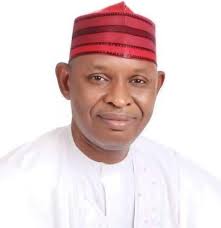Governor Abba Yusuf of Kano State has presented a proposed budget of N549 billion for the 2025 fiscal year to the State House of Assembly. Dubbed the “Budget of Hope, Human Capital and Economic Development,” this proposal aims to enhance the welfare of Kano’s residents through strategic investments in key sectors.
The budget outlines N312 billion for capital expenditure and N236 billion for recurrent expenditure, resulting in a capital-to-recurrent ratio of 57:43. The focus on capital spending is evident with N461 billion earmarked for the Social and Economic Sectors.
Key allocations within the budget include:
– **Education Sector:** Receiving the largest share of N168 billion, which constitutes 31% of the total budget. This exceeds the recommendations by UNESCO and UN, underscoring the government’s commitment to advancing education at all levels.
– **Health Sector:** Allocated N90 billion, representing 16.5% of the budget, to improve healthcare services and infrastructure.
– **Agricultural Sector:** Set to receive N21 billion (3.83%) to bolster agricultural productivity and food security.
– **Infrastructure Development:** Allotted N70 billion (12.87%) to continue enhancing the state’s infrastructure.
– **Security, Justice, and Emergency Services:** Designated N23 billion (4%) to strengthen security and emergency response capabilities.
– **Water Supply and Rural Development:** Receiving N27 billion (4.96%) to improve water access and rural infrastructure.
Governor Yusuf emphasized the importance of these allocations in executing policies and programs that ensure quality services in education, health, and other critical areas. He urged lawmakers to expedite the passage of the budget to maintain the January to December fiscal cycle, allowing for timely implementation of development projects.
Speaker Jibrin Falgore assured the governor of a prompt review and passage of the budget, lauding the administration’s efforts in infrastructure, security, health, and education.
This budget proposal reflects Kano State’s strategic focus on human capital development and economic growth, with significant investments aimed at addressing the core needs of its population.


